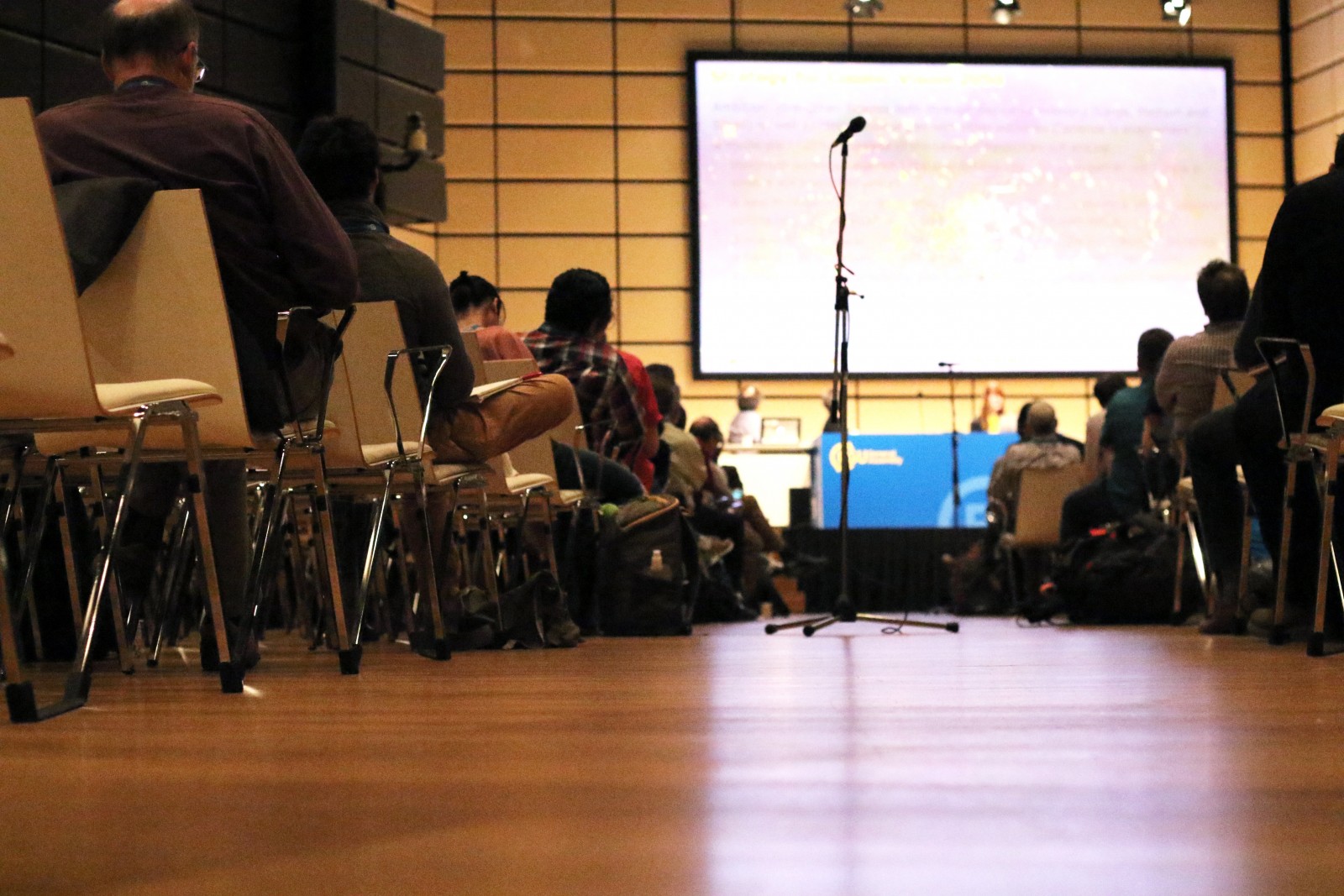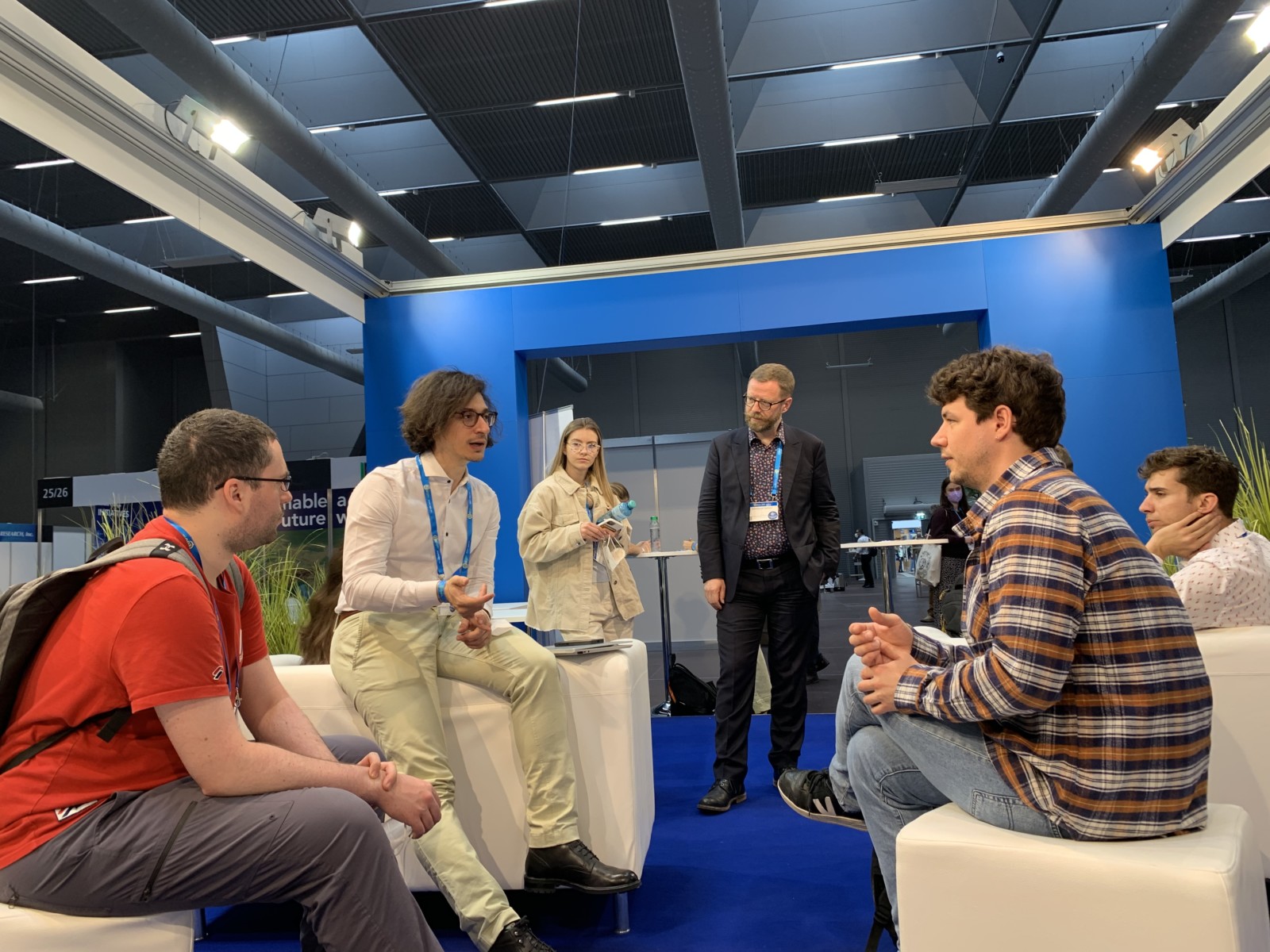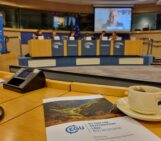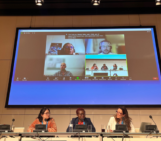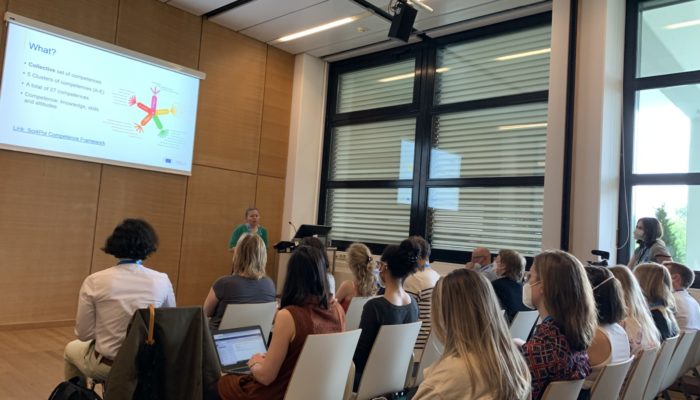
As the largest geoscience meeting in Europe with 14,000 onsite and 3,000 virtual participants expected this year, the EGU General Assembly has a huge range of scientific sessions that enable participations to gain a greater understanding about specific topics both within and outside of their research area. But more than this, there are also plenty of non-scientific sessions that participants can attend to learn new skills, expand their network, and diversity their expertise. In the lead up to #EGU23, this month’s blog post will highlight some of the event’s exciting science for policy sessions that will outline how scientists can more effectively contribute to policymaking processes, connect with decision-makers, and have a policy impact!
The session’s listed below include Union-wide sessions, Short Courses, and Splinter Meetings which will incorporate a range of different moderation styles to engage the audience. Be sure to add a few to you’re EGU23 Personal Programme and don’t forget to sign up to the #EGU23 Ask a Policy Expert by April 14 to have your specific policy questions answered!
Union-wide session: Understanding the key science for policy themes
How can institutions assess impact beyond citations? Paths towards recognition and impact
Monday 25 April, 8:30 – 12:30 CEST
It is often challenging for scientists to justify participating in outreach activities and engaging in policy when they don’t have the time to do so and aren’t rewarded for their efforts. This session will address the systemic and institutionalised issues that scientists have when undertaking unrewarded work and discuss potential solutions.
As climate change impacts accelerate, are we sleepwalking into the inferno…?
Monday 25 April, 16:15- 18:00 CEST
Despite widespread media coverage of these devastating events, policy and public opinion still lag a long way behind what is required to address the climate crisis effectively and rapidly. This session will examine why this is and the role that the geoscience community can play in driving action.
The Science activist: should science get Political?
Tuesday 26 April, 10:45 -12:30 CEST
This Great Debate will discuss whether scientists sometimes need to play the role as an advocate or activist or whether they should always remain neutral brokers of information.
Managing compounding impacts from extreme events through societal crises
Wednesday 27 April, 10:45 -12:30 CEST
This symposium will address how Europe can more effectively address multihazards and compounding impacts from extreme events through ongoing societal crises.
Short Courses: Building your science for policy skills
Researchers as informed citizens: taking part in the public discourse without risking our scientific integrity
Tuesday 25 April, 10:45 -12:30 CEST
This Short Course will encourage participants to explore their place on the continuum between environmental activism and detached professionalism.
How to create spaces for science-policy-citizen interaction and dialogue
Tuesday 25 April, 10:45 -12:30 CEST
Creating and facilitating activities that bring scientists and policymakers together can help align the goals, expectations, and needs of both communities, bridging the gap to promote more consistent interaction and productive cooperation! This Short Course will provide practical examples from EGU’s Policy Programme and explain how these initiatives can be replicated.
What are Science4Policy competences and why are they crucial for researchers to achieve policy impact
Wednesday 26 April, 16:15-18:00 CEST
Achieving policy impact requires a distinct set of ‘Science4Policy’ competences. This session will introduce the European Commission Joint Research Centre’s ‘Science4Policy’ Competence Framework and highlight the skills that help scientists and research organisations to engage with policy.
Beyond SciComm 101: what is meaningful & ethical communication when it comes to the climate crisis?
Thursday 27 April, 8:30-10:15 CEST
How can scientific and government actors ensure their communications are equally meaningful and ethical? This Short Course will answer this question by combining insights from state-of-the-art scientific knowledge, novel empirical research on values-targeted communication strategies, and a deep understanding of practitioners’ and citizens’ attitudes.
Non-academic stakeholders and sectors: who are they, why should we care and how do we engage with them?
Friday 28 April, 8:30-10:15 CEST
Science is often created and shared in silos, limiting research impact and potential societal progress. Breaking down these silos requires more than just expanding our academic network and working across disciplines. It requires us –as scientists and as a scientific community– to engage more with other sectors and stakeholders. But where do we start? Join us in this Short Course to find out!
Splinter Meetings: Joining the Discussion
Climate adaptation round table
Monday 25 April, 12:45–13:45 CEST
This round table will include an open discussion on where the science of climate adaptation stands in Europe and how science can guide the societal transformation needed to avoid the worst impacts of climate change.
Have your say: your experience in Horizon 2020 and views for Horizon Europe
Tuesday 26 April, 16:15 – 18:00 (tbc)
Do you have opinions and experiences that you would like to share on research funding in Europe? This splinter meeting will provide you with the opportunity to give direct feedback on the European Union’s Research Funding Framework Programmes with those working in the Commission.
Welcome to Urland: A science-policy simulation game
Wednesday 26 April, 10:45 -12:30 CEST
Welcome to Urland, a beautiful country that has recently discovered a large shale gas deposit that could be used to diversify and secure its energy supplies while also providing much needed employment to the local people! A recent application made by Drilling & Co to exploit this resource looks like a promising opportunity and they have already made a risk assessment. But is this enough evidence to base a decision on? That’s up to you to decide! Join us to explore policymaking concepts and practice science-advisory skills through this simulation game.
Local politics vs intergovenmental processes: A round table discussion on how to engage across the policymaking spectrum
Wednesday 26 April, 14:00-15:45 CEST
This round table discussion will introduce you to experts who have worked across the spectrum of governance levels. They will compare the benefits of working on different scales and also talk about some of the pitfalls and challenges.
Drop in clinic: Communicating your science meaningfully & ethically
Thursday 27 April, 10:45 -12:30 CEST
Join this Drop in clinic to meet experts from the Joint Research Centre of the European Commission will give you tailored advice and practical feedback that you can implement to successfully navigate the policy world and connect more deeply with citizens.
A guided self-assessment of your science for policy competences
Thursday 27 April, 10:45 -12:30 CEST
During this Splinter Meeting, researchers will be guided through the self-assessment tool by one of its creators, Lene Topp. While it is recommended that participants attend the Short Course What are Science4Policy competences prior to this Splinter Meeting, it is not essential.
How to write a policy brief
Friday 28 April, 10:45 – 12:30 CEST
Policy briefs are concise, accessible documents that aim to communicate the practical implications of research to a particular policy audience and provide them with solutions to a specific issue. This Splinter Meeting will be run in the form of an interactive workshop. Participants will be given provided with tips and tools to create their own policy brief as well as interactive exercises to work on with other attendees and the session’s leaders.
Establishing a #SciPol Network
Meet the Science for Policy Experts
This year, EGU will be offering General Assembly participants the opportunity to have their questions answered by individuals who are working on the interface of science and policy through small group meetings. These meetings will be coordinated by the EGU office and hosted both online and in-person throughout EGU23. To meet and expert and have your science for policy questions answered, please apply here by April 14.
EGU Science for Policy Help Desk
12:00 – 13:00 everyday at the EGU Booth
Throughout EGU23, in-person participants will be able to drop by the EGU’s Science for Policy Help Desk at the EGU Booth every day from 12:00-13:00 to further discuss their questions and how they can more share their expertise more effectively!
The EGU is always an exciting week with a lot to see and do! But if you’re interested in policy and sharing your expertise with a wider audience, make sure you add some policy-related sessions to your schedule. If you have any further questions about the Assemblies science for policy sessions and activities, please don’t hesitate to get in touch via policy@egu.eu.

